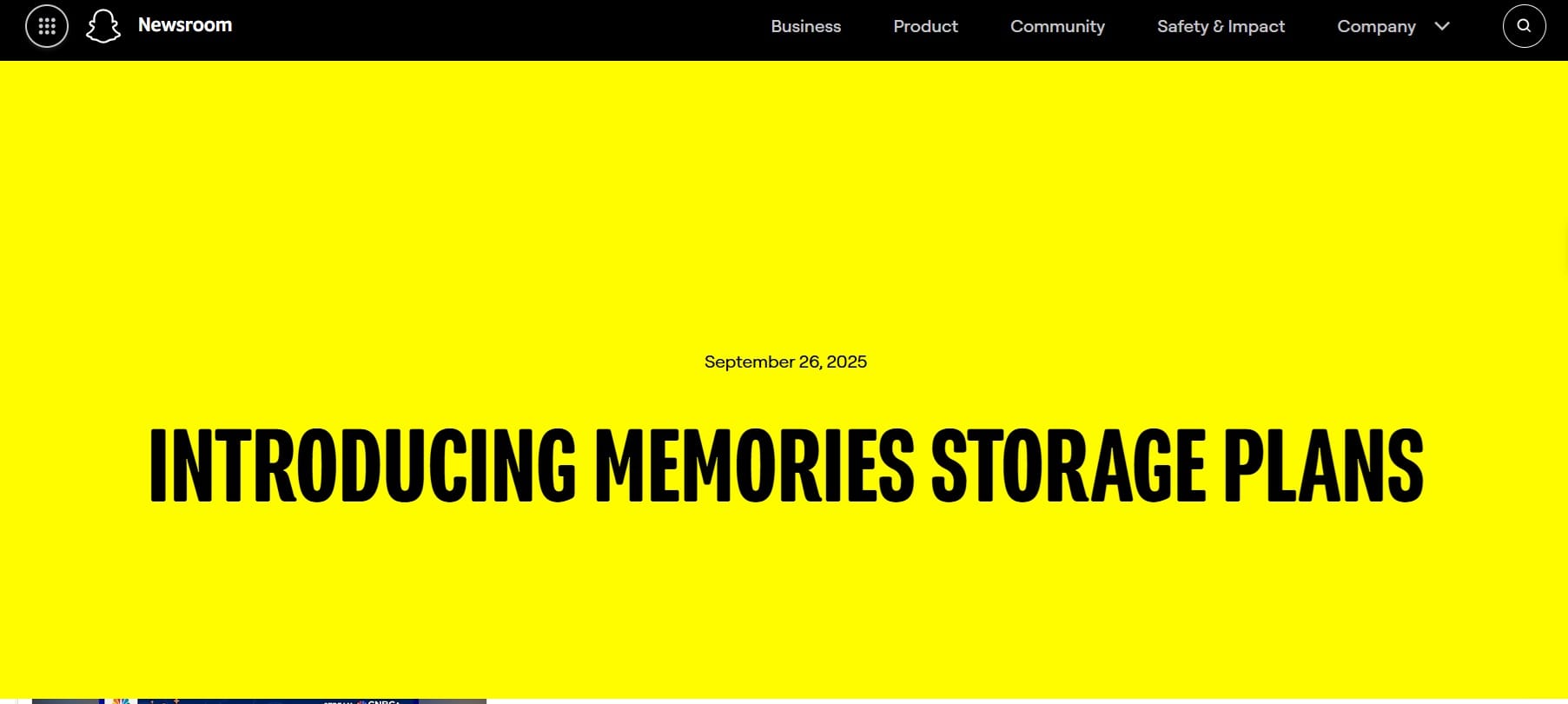Snapchat users got a shock: Snapchat’s memories feature is no longer free. It’s a feature that reminds people of the memories from blurry party photos, to fun with filter snaps, has now blurred at 5GB. The feature that randomly took its users down the memory lane will now have a price tag on it. Why did Snapchat decide to do this after a decade of free service? How much will it cost from now on? Is the pricing any different for the Indian audience? Does this mean all the saved memories will be gone? Should you delete anything? For all that, learn more.

The New Limit
- Free Snapchat Memories storage will now be 5GB only for all users.
- Once you surpass this 5GB limit, you’ll need to pay for every extra space that you use.
Paid Plans for Extra Storage
- The Basic Plan starts at 100GB for $1.99/month (INR 176.57).
- For Snapchat+ Users: You have already paid $3.99/month, so your storage by default increases automatically to 250GB.
- Platinum Plan: It’s for high-end Snapchat users who never delete anything. It is 5TB for $15.99/month.
The Plan Affects Who?
- According to Snapchat, most users won’t have an effect because they don’t use more than 5GB.
- It’s the power users who will see an effect because they store lots of Snaps. They’ll need to either delete some Snaps or pay for a plan.
Extra Help
Snapchat is favouring users who have over 5GB of storage with a 1-year grace period before they have to pay or clean the storage.
Why Snapchat Is Doing This?
- The reason is quite simple because Snapchat wants to earn more money beyond ads.
- Snapchat launched Lens+ for $9/9/month last month. This is to give the Snapchat users exclusive AR effects.
- The pricing is similar to the pricing system of what Google and Apple do with cloud storage.
The Bottom Line Is…
Most people won’t have an effect because 5 GB is a lot for an average Snapchat user. In case you have lots of old Snaps, it’s time to decide, either to delete the clutter or to pay to keep them all. The app wants to capitalise on the Power users with the new pricing model (add to their subscription revenue).


Leave a Reply